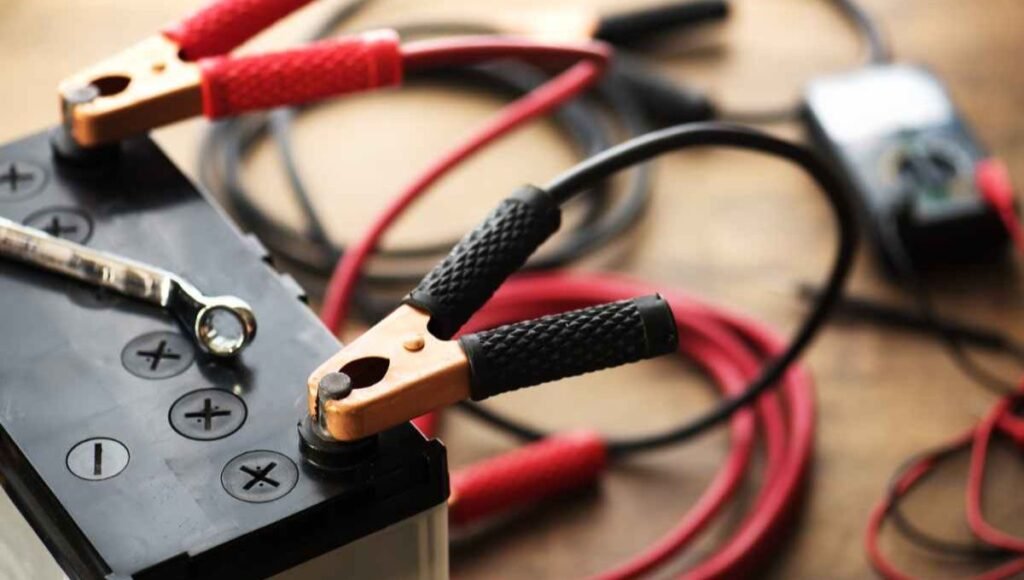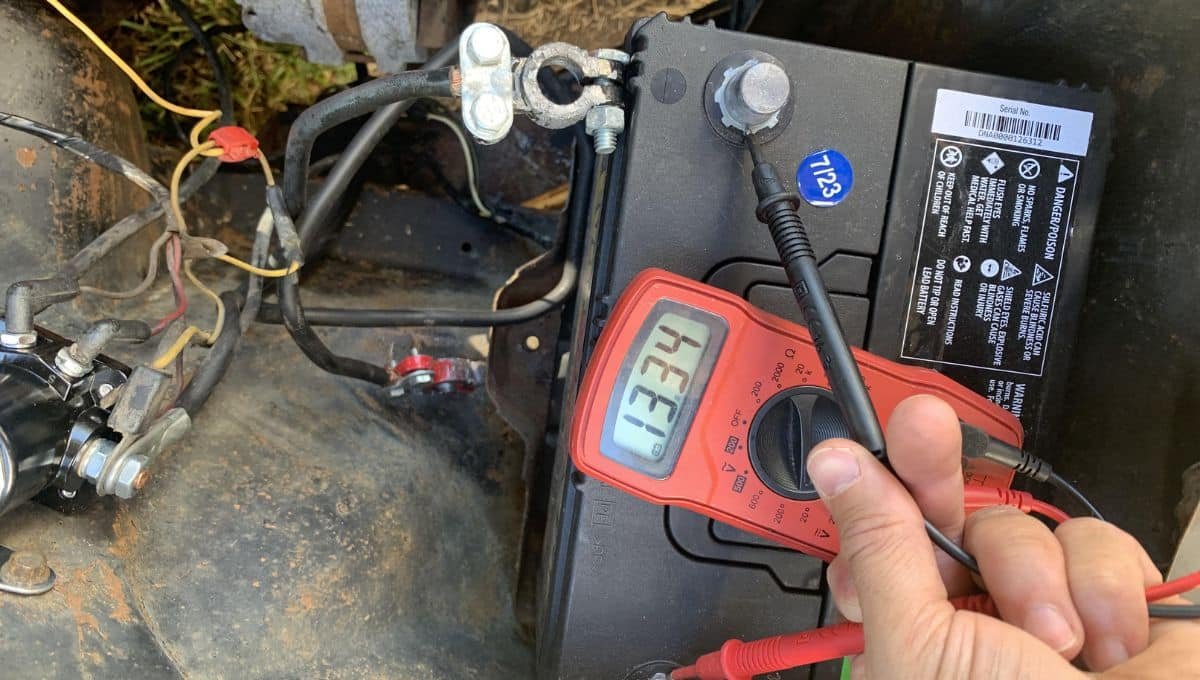Car Alarm Goes Off When Charging Battery – Common Causes!
From personal experience, I’ve found that my car alarm would sometimes go off while charging the battery due to voltage spikes.
I resolved this by using a charger with a smooth, regulated output and ensuring all doors were properly closed. If the problem persists, checking the wiring and consulting a professional can be very helpful.
Understanding Why Your Car Alarm Goes Off During Battery Charging:
Car alarms are designed to protect your vehicle from unauthorized access, alerting you to potential threats. However, there are times when this security feature can behave unpredictably, such as when you’re charging your car battery.
Understanding the reasons behind this can help you address the issue and ensure both your vehicle and its alarm system function properly.
Explaining the Role of a Car Alarm System:
How Car Alarms Protect Your Vehicle:
A car alarm is your vehicle’s first line of defense against theft and vandalism. Equipped with sensors and a control unit, the system detects unauthorized entry or tampering.
When triggered, the alarm emits a loud siren, designed to deter thieves and alert nearby individuals to the threat.
The effectiveness of this system lies in its ability to detect even the slightest disturbances, which, while beneficial, can sometimes lead to false alarms.
The Connection Between Car Alarms and the Electrical System:
The car alarm system is intricately linked to your vehicle’s electrical system. It draws power from the car battery to remain active even when the engine is off. This constant power supply is crucial for the alarm to monitor the vehicle 24/7.
However, this dependence on the electrical system also means that any fluctuations in power, such as those that occur during battery charging, can disrupt its normal operation.
Common Reasons for a Car Alarm to Trigger:
Car alarms can be triggered by a variety of factors, from physical tampering to environmental conditions. Some common triggers include the opening of a door or trunk without disarming the alarm, movement detected by interior sensors, or the disconnecting of the battery.
Power surges or drops in voltage during battery charging can also cause the alarm to activate unexpectedly.
Also Read: Can I Run 2 Amps Off a Single Car Battery – The Truth Revealed!
The Role of the Car Battery in Alarm System Functionality:

How the Car Battery Powers the Alarm System:
The car battery is essential not just for starting the engine but also for powering the car’s electronic systems, including the alarm.
Even when the vehicle is turned off, the battery supplies a continuous low-level current to the alarm system, ensuring it remains alert.
A fully charged and healthy battery provides the stable voltage necessary for the alarm to function without errors.
The Importance of a Stable Battery Charge for Alarm Operation:
A stable and consistent battery charge is vital for the reliable operation of the car alarm. If the battery voltage drops below a certain level, the alarm may not have enough power to operate correctly, leading to potential false alarms or, conversely, a failure to trigger when necessary.
Conversely, voltage spikes during charging can also cause the alarm system to behave erratically.
Why Charging the Battery Can Impact the Alarm System:
Charging the battery introduces a temporary but significant change in the vehicle’s electrical environment. The influx of electrical current can cause voltage spikes or fluctuations, which the sensitive alarm system might interpret as a tampering attempt.
This can result in the alarm sounding unexpectedly during the charging process, especially if the system is not equipped to handle such fluctuations.
Common Causes of a Car Alarm Going Off When Charging the Battery:
Voltage Fluctuations and Their Impact on the Alarm System:
When charging a battery, the voltage level can fluctuate, especially if the charger is not designed to provide a smooth, controlled charge. These fluctuations can mimic the conditions of a power loss or surge, triggering the alarm system.
The alarm’s sensors, designed to detect such anomalies, may interpret these fluctuations as an attempt to disable the system, thus setting off the alarm.
How Charging the Battery Can Lead to Electrical Interference:
Beyond just voltage fluctuations, charging the battery can introduce electrical interference into the vehicle’s system. This interference can affect not only the alarm but also other electronic components.
The noise created by the charging process can disrupt the normal signals that the alarm system relies on to function, leading to a false activation.
The Role of Faulty Wiring or Connections in Alarm Activation:
Faulty wiring or loose connections within the alarm system can exacerbate the issues caused by battery charging.
If the wiring is already compromised, the additional stress of fluctuating voltage during charging can cause intermittent connections, which may trigger the alarm.
Ensuring that all connections are secure and that the wiring is in good condition is crucial for preventing such problems.
Also Read: Does Leaving USB Plugged in Car Drain Battery – Here’s
Troubleshooting the Alarm During Battery Charging:

How to Safely Charge Your Battery Without Triggering the Alarm:
To avoid triggering the alarm while charging the battery, it’s important to use a charger that provides a steady, controlled flow of current.
Disconnecting the alarm system or placing it in valet mode (if available) before starting the charging process can also prevent false alarms.
Additionally, ensuring that all doors, trunk, and hood are securely closed and locked can help prevent the alarm from being accidentally triggered.
Steps to Diagnose and Resolve Alarm Issues During Charging:
If your alarm goes off during battery charging, start by checking the battery voltage and ensuring it is within the correct range.
Inspect the wiring and connections for any signs of wear or damage. Using a multimeter, check for consistent power delivery throughout the alarm system.
If the problem persists, consider consulting the vehicle’s manual or seeking professional assistance to diagnose more complex issues.
Tools and Techniques for Identifying the Root Cause:
Diagnosing why an alarm goes off during battery charging may require a few specialized tools. A multimeter can help check the voltage levels and continuity of the alarm system wiring.
An OBD-II scanner can read any error codes related to the vehicle’s electronics, which might give clues to the underlying issue.
These tools, combined with a systematic approach to troubleshooting, can help you identify and resolve the problem efficiently.
Preventive Measures to Avoid Alarm Activation During Battery Charging:
Tips for Properly Maintaining Your Car Battery and Alarm System:
Regular maintenance of both your car battery and alarm system is key to avoiding issues. Ensure that your battery is always in good condition by keeping it clean and free of corrosion. Regularly check the alarm system’s wiring and connections for any signs of wear.
Additionally, periodically testing the alarm system to ensure it responds correctly can help catch potential problems before they cause unexpected alarms.
The Benefits of Regular Electrical System Checks:
Routine checks of your vehicle’s electrical system can prevent issues that might trigger the alarm during battery charging.
Regular inspections can identify potential problems such as loose connections, worn-out wires, or a weakening battery.
By addressing these issues early, you can maintain a stable electrical environment that supports the proper functioning of the alarm system.
When to Consider Professional Help for Alarm and Battery Issues:
If the alarm continues to go off during battery charging despite your efforts to troubleshoot, it may be time to seek professional help.
An expert can conduct a thorough inspection of both the battery and the alarm system, using advanced diagnostic tools to pinpoint the problem.
Professional assistance is particularly valuable if the issue involves complex electrical components or requires specialized knowledge to resolve.
Also Read: What is the Advantage of 2.6 Volt Batteries in Series – The Power of Efficiency!
When to Seek Professional Assistance:

Knowing When the Alarm Issue Requires Expert Attention:
Understanding when to seek expert help is crucial. If your troubleshooting efforts don’t resolve the problem, or if you notice other electrical issues in the vehicle, it’s wise to consult a professional.
Persistent alarm problems during battery charging could indicate deeper electrical system issues that require a trained technician to diagnose and repair.
What to Expect During a Professional Diagnosis and Repair:
During a professional diagnosis, the technician will likely start by checking the battery’s health and voltage levels. They will then inspect the alarm system, including its sensors, wiring, and control unit.
Based on the findings, they might recommend repairs such as replacing faulty components, rewiring, or installing a more robust alarm system. This process ensures that the alarm and battery function harmoniously.
Cost Considerations and Long-Term Solutions for Alarm and Battery Problems:
The cost of diagnosing and repairing alarm and battery issues can vary depending on the complexity of the problem.
While minor fixes like replacing a battery or repairing a connection are relatively inexpensive, more extensive repairs involving the alarm system or electrical components may cost more.
However, investing in these repairs can provide long-term peace of mind, ensuring that your vehicle’s alarm system works reliably and that battery-related issues are minimized.
FAQ’s
1. Why does my car alarm go off when I’m charging the battery?
Charging the battery can cause voltage fluctuations or electrical interference, which may trigger the car alarm. The alarm system might interpret these changes as tampering.
2. How can I prevent my car alarm from activating while charging the battery?
Use a charger that provides a steady, controlled charge. Consider disconnecting the alarm system or placing it in valet mode before charging, and ensure all doors and the trunk are securely closed.
3. What role does the car battery play in the alarm system?
The car battery powers the alarm system even when the vehicle is off. A stable battery charge is crucial for the alarm’s proper functioning, as fluctuations can lead to false alarms.
4. What should I check if my alarm goes off during battery charging?
Inspect the battery voltage, wiring, and connections for issues. Use a multimeter to check for consistent power delivery and consult the vehicle’s manual or a professional if problems persist.
5. When should I seek professional help for alarm issues related to battery charging?
Seek professional assistance if troubleshooting does not resolve the problem or if you notice other electrical issues. A technician can conduct a thorough inspection and address complex problems effectively.
Conclusion:
If your car alarm activates during battery charging, it’s typically due to voltage fluctuations or electrical interference. To prevent this, use a steady charger, place the alarm in valet mode, and ensure all vehicle openings are securely closed. Regular maintenance and prompt professional help can address ongoing issues and keep the alarm system functioning properly.
Don’t Forget to Read:














Post Comment